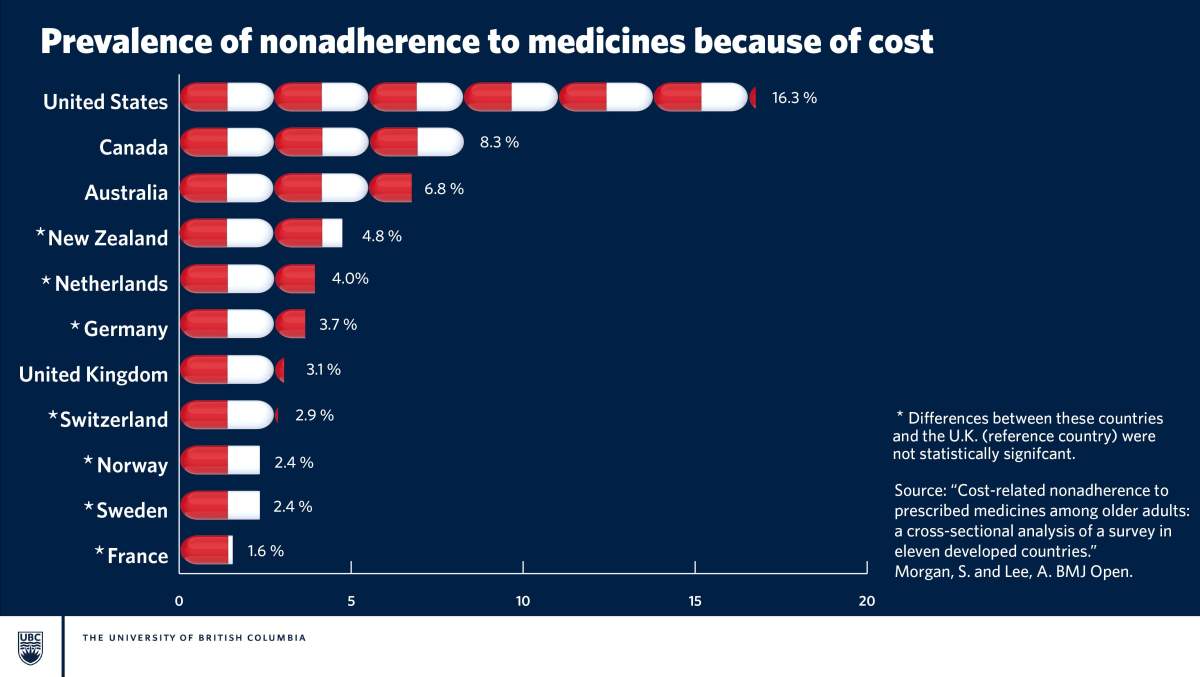It’s become a rising trend, older Canadians skipping prescriptions due to the increased cost, according to a new study by the UBC School of Population and Public Health.

The study found that nearly 10 per cent of Canadians aged 55 and older skipped their prescriptions in 2014 and turned to different methods to treat their ailments. The study’s senior author Steve Morgan said patients have been cutting pills, skipping doses, and trying to manage their conditions without the use of drugs, all because they feel they can’t afford the out-of-pocket costs of their medication.
Researchers found that one in 12 Canadians admitted to skipping their prescriptions, the second-highest total of the 11 countries surveyed. Only the U.S. had a higher number of residents 55 and older reporting financial barriers to filling prescriptions.
Morgan said skipping prescriptions often ends up costing more money in the long run, not only to the patient but to the general population.
Unlike many other countries with universal public health care, Morgan said Canada has many gaps in their public drug plans and that’s why 8.3 per cent of older Canadians aren’t filling their prescriptions.

Get weekly health news
“We do not have a system of universal coverage in Canada and it’s resulting in very many Canadians not filling prescriptions that have been written for them,” he added.
The study also found Canadians without insurance were twice as likely to not fill prescriptions because of the cost, and that low-income Canadians were three times more likely to report financial barriers to filling prescriptions.
“Our problem hasn’t gone away,” Morgan said. “Financial barriers to prescription drugs are still high, both in absolute terms and relative to our peer countries.”
INFOGRAPHIC: Full list of all 11 countries and the percentage of citizens 55 and older not filling their prescriptions:
The Canadian sample for the survey included 5,269 participants, the second largest among all surveyed countries (There were 7,206 participants in Sweden).








Comments